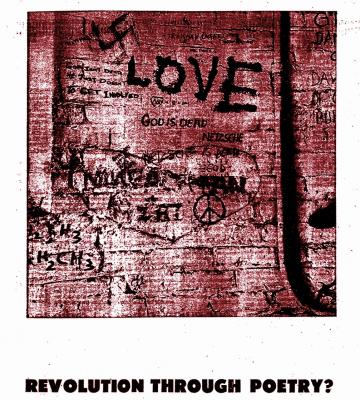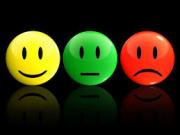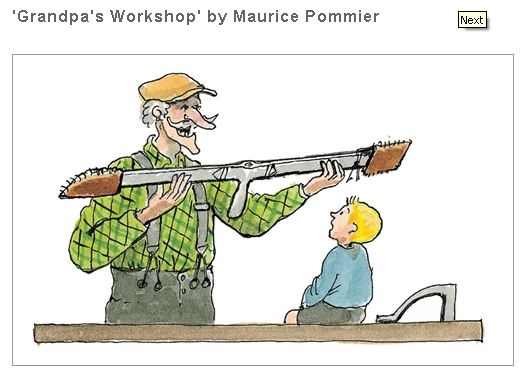 I asked my wife this morning, "Do you think I'm a Sheldon? Sometimes, I worry that I'm a Sheldon."
I asked my wife this morning, "Do you think I'm a Sheldon? Sometimes, I worry that I'm a Sheldon."
"What do you mean?" she asked.
"Well, it's just . . . the stuff I worry about. It's crazy. Why do I care about this stuff?!"
"No, you're not a Sheldon. But what kind of stuff?"
Here's the thing. Something linguistic has been bugging the HELL out of me for about 10 years now, and I'm just about reaching a breaking point with this one. It's about the '@' symbol. You know . . . the one in all of your email addresses. The one that starts off all of your Twitter handles? Yeah, that thing. It is NOT, I repeat, FREAKING NOT . ."the AT symbol"! It is, quite obviously and quite emphatically, an 'EACH AT symbol! It's a rate, not a location, dammit! How do I know this? Because I saw it when I was a boy. If you went into a grocery store or a farmer's market, anything priced by the piece, such as fruit or cans or canteloupes, they were all priced for 'each'. The normal abbreviation on signs was 'ea.' So, apples were 10¢ ea. Watermelons would be 20¢ ea.
 And the '@' symbol didn't exist on most old typewriters of the time. It started out as an accounting symbol . . . and let's be clear: 14 white wall tires @ $25 means something quite different if @ means 'at' rather than 'each at'. If it's the former, you only have to pay $25 and you get 14 tires. That's quite a deal! However, if you actually know what you're talking about, and you know that it's actually the latter, you realize that you must pay $350 to get those 14 tires. And I guarantee, back in 1972, NOBODY thought it meant 'AT'. . . except, evidently, the computer nerds who were busily inventing network protocols such as email and TCP/IP.
And the '@' symbol didn't exist on most old typewriters of the time. It started out as an accounting symbol . . . and let's be clear: 14 white wall tires @ $25 means something quite different if @ means 'at' rather than 'each at'. If it's the former, you only have to pay $25 and you get 14 tires. That's quite a deal! However, if you actually know what you're talking about, and you know that it's actually the latter, you realize that you must pay $350 to get those 14 tires. And I guarantee, back in 1972, NOBODY thought it meant 'AT'. . . except, evidently, the computer nerds who were busily inventing network protocols such as email and TCP/IP.
You saw the symbol mostly on hand-lettered signs, so the lack of a typewriter key didn't matter, and the shortening of 'each at' by placing the 'a' inside the giant 'e' was a great shorthand. Of course '@' means 'each at'! What are you all thinking?!
But now, it's sort of a lost cause. To quote one of my favorite philosophers, 'When the avalanche has started, it's too late for the pebbles to vote.' So now that every email is joe.schmoe AT blahblahblah DOT com, and there's a show on television actually called '@Midnight', I just shake my head in astonishment. And you send messages to your Twitter mates by sending it '@JoeSchmoe', which frankly sounds kind of rude and boorish. Wouldn't you want to send it 'TO' Joe Schmoe? But I guess we're just wingin' those messages AT each other's faces now. So I guess AT is what you do these days. It's just . . . I do not think that word means what you think it means. But you're all so certain of it. You silly gits.

 Working in corporate America, one is surrounded every day by the endless jargon of endless variants of organizational standards theory. In the manufacturing world, it was all ISO 9000. In the IT world, everything is all about ITIL. And everywhere you go, you see the religion of Jack Welch, the high holy Six Sigma. And there are sub-variants for particular areas of operation. Project management has Agile and Scrum. Purchasing has LEAN. Every department has a well-branded theory these days.
Working in corporate America, one is surrounded every day by the endless jargon of endless variants of organizational standards theory. In the manufacturing world, it was all ISO 9000. In the IT world, everything is all about ITIL. And everywhere you go, you see the religion of Jack Welch, the high holy Six Sigma. And there are sub-variants for particular areas of operation. Project management has Agile and Scrum. Purchasing has LEAN. Every department has a well-branded theory these days. I asked my wife this morning, "Do you think I'm a Sheldon? Sometimes, I worry that I'm a Sheldon."
I asked my wife this morning, "Do you think I'm a Sheldon? Sometimes, I worry that I'm a Sheldon." And the '@' symbol didn't exist on most old typewriters of the time. It started out as an accounting symbol . . . and let's be clear: 14 white wall tires @ $25 means something quite different if @ means 'at' rather than 'each at'. If it's the former, you only have to pay $25 and you get 14 tires. That's quite a deal! However, if you actually know what you're talking about, and you know that it's actually the latter, you realize that you must pay $350 to get those 14 tires. And I guarantee, back in 1972, NOBODY thought it meant 'AT'. . . except, evidently, the computer nerds who were busily inventing network protocols such as email and TCP/IP.
And the '@' symbol didn't exist on most old typewriters of the time. It started out as an accounting symbol . . . and let's be clear: 14 white wall tires @ $25 means something quite different if @ means 'at' rather than 'each at'. If it's the former, you only have to pay $25 and you get 14 tires. That's quite a deal! However, if you actually know what you're talking about, and you know that it's actually the latter, you realize that you must pay $350 to get those 14 tires. And I guarantee, back in 1972, NOBODY thought it meant 'AT'. . . except, evidently, the computer nerds who were busily inventing network protocols such as email and TCP/IP.
 I have historically been a voracious reader, particularly of novels. But as I've reached my late 40s with young children in the house, I've found that I have little time, or more importantly, mental bandwidth, to read much. What I do read is usually in a very narrow bandwidth of trusted authors and easy-to-digest styles. Until he died, I read Robert Parker's mystery novels. Until the series ended, I read JK Rowling's Harry Potter books. The last trusted source I have right now is LE Modesitt's fantasy fiction. I read it because, a) it's escapist, but b) it's also grown-up fiction. It's fantasy with the concerns and knowledge of a person who has dealt with real world power struggles and real-world politics. I've taken lessons from many of his books on how to operate in a modern corporation, and how to interpret what's actually going on in the divisive politics of 21st century America.
I have historically been a voracious reader, particularly of novels. But as I've reached my late 40s with young children in the house, I've found that I have little time, or more importantly, mental bandwidth, to read much. What I do read is usually in a very narrow bandwidth of trusted authors and easy-to-digest styles. Until he died, I read Robert Parker's mystery novels. Until the series ended, I read JK Rowling's Harry Potter books. The last trusted source I have right now is LE Modesitt's fantasy fiction. I read it because, a) it's escapist, but b) it's also grown-up fiction. It's fantasy with the concerns and knowledge of a person who has dealt with real world power struggles and real-world politics. I've taken lessons from many of his books on how to operate in a modern corporation, and how to interpret what's actually going on in the divisive politics of 21st century America.  Take a look at this article headline and blurb from the front page of this morning's CBS News website: "College Board unveils sweeping changes to SATs". That's fine. It's the blurb beneath that is the problem.
Take a look at this article headline and blurb from the front page of this morning's CBS News website: "College Board unveils sweeping changes to SATs". That's fine. It's the blurb beneath that is the problem. Personally, 2013 wasn't that bad, particularly compared to the Hell that were 2011 and 2012. But from a more global and holistic perspective, 2013 was one heck of a rocky ride. Just in an effort to capture some of my thoughts about what just happened to us all, I thought I'd try to capture my view of what was particularly good and particularly sucky about the 13th year of this latest millennium. I think I'll talk about many of these things in more detail in other posts, so I'm just going to skim the topics.
Personally, 2013 wasn't that bad, particularly compared to the Hell that were 2011 and 2012. But from a more global and holistic perspective, 2013 was one heck of a rocky ride. Just in an effort to capture some of my thoughts about what just happened to us all, I thought I'd try to capture my view of what was particularly good and particularly sucky about the 13th year of this latest millennium. I think I'll talk about many of these things in more detail in other posts, so I'm just going to skim the topics.

 You know that feeling you get when someone on television does something really embarrassing, only they don't seem to realize it, but you feel embarrassed? You don't? Well, some of us do.
You know that feeling you get when someone on television does something really embarrassing, only they don't seem to realize it, but you feel embarrassed? You don't? Well, some of us do. For many years now . . . it has to be going on 25 at least . . . I've thought that there ought to be a word in the English language for a thing or a concept with no name. It's the idea of something that doesn't currently have a word to describe it, but probably ought to. Before we all knew that an aglet was that plastic piece on the end of your shoelaces, that plastic thing was one of these things, Then someone came along and invented the word. All right, it probably was a word in the shoe industry for decades, but nobody outside knew about it.
For many years now . . . it has to be going on 25 at least . . . I've thought that there ought to be a word in the English language for a thing or a concept with no name. It's the idea of something that doesn't currently have a word to describe it, but probably ought to. Before we all knew that an aglet was that plastic piece on the end of your shoelaces, that plastic thing was one of these things, Then someone came along and invented the word. All right, it probably was a word in the shoe industry for decades, but nobody outside knew about it.